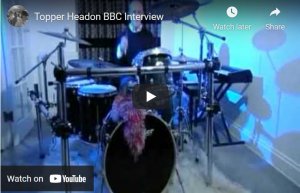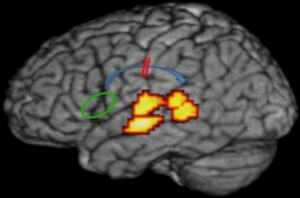Source https://limelightmagazine.com.au/news/study-shows-that-music-can-rewire-the-brain/
by Delia Bartle on 13 October, 2015
A new Finnish research team have found that practising an instrument can make you a better communicator by altering the brain.
Sound, and by extension music, is a primal form of communication. We can express emotion, tell stories, inspire empathy, trust and compassion through the sounds we make, and perhaps because of this music is one of the most immediately visceral and communicative of all the arts. Numerous studies from around the world have shown that music can have a powerful impact on our psychology, but in recent years closer attention has been made to the effect music can have on our physiology. Some studies have shown that listening to music can have a unique effect on the brain, particularly in activating areas associated with emotion, motivation, planning and reward. Now research conducted by a team at the University of Jyväskylä in Finland suggests that not only does music have the power to produce strong emotional responses, but that it can also rewire the circuitry of our brains if practised regularly.
The study, which uses data going back as far as 2009, showed that long periods of practice increased the size of the brain centres responsible for hearing and physical dexterity. Musicians are often more proficient at isolating speech in noisy environments, and some even boast enhanced skills in detecting emotional cues in conversations. Other studies have shown that the tissue connecting the left and right hemispheres of the brain is larger in musicians, and so the Finnish research team wanted to explore if music had the power to improve the communication between the two hemispheres?
The results suggest that the answer is yes. Two groups of people were assembled for the study. The first were all practising professional musicians with degrees in music (and thus had extensive exposure to music), and the second were individuals who had never played a musical instrument professionally.
The study only tested the effect that listening to music – not actually playing it – has on the hemispheres of the brain, but was still able to identify clear differences between the test groups. Three musical samples were used: the progressive rock song Stream of Consciousness by Dream Theatre; Argentinian tango Adios Nonino by Astor Piazolla, and three excerpts from Igor Stravinsky’s iconic 20th century classical work The Rite of Spring. The researchers used MRI scanners to monitor neurological activity taking place in the brain’s hemispheres in real-time as the subjects were exposed to the music.
As you might have guessed, the patterns of activity in the left and right hemispheres were far more symmetrical in the brain of musicians than that of non-musicians. Keyboardists showed the most symmetrical balance, and researchers attribute this to way in which keyboard players require a more equal use of both hands. Musicians who worked professionally within an ensemble showed a prompt response to multiple sensory stimuli, an essential skill for a successful musical collaboration. Researchers think this skill – which requires speed and efficiency – may require a more symmetrical use of both hemispheres.
The results of this study strongly suggest that practising musicians do in fact have a rewired brain that allows them to not only be better musicians but also better communicators in general. What better reason could there be to take up a musical instrument?




